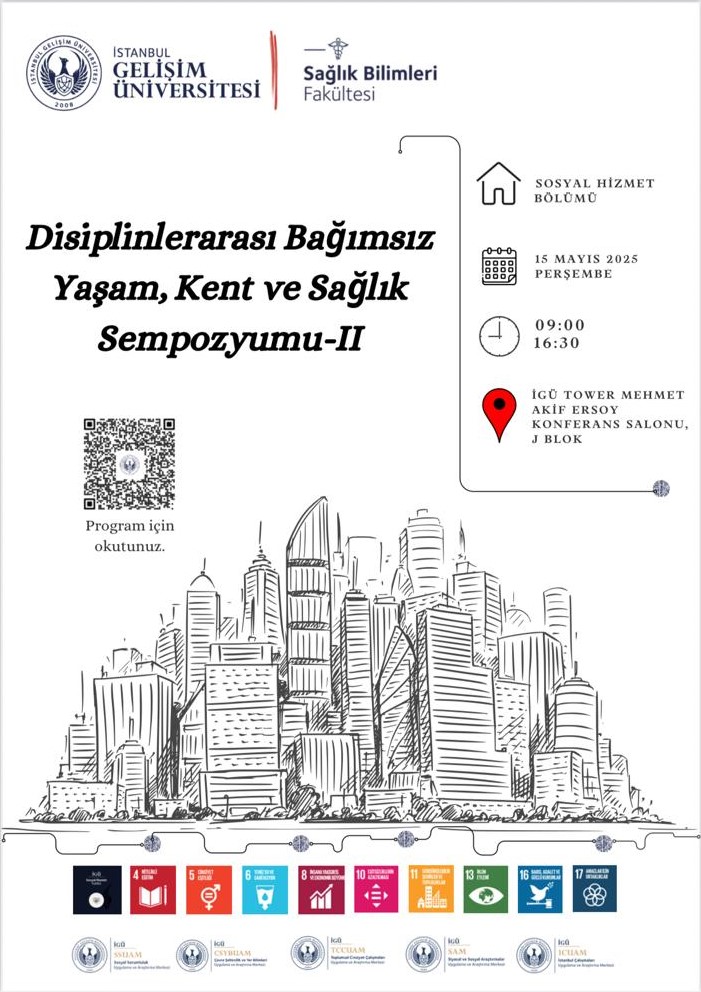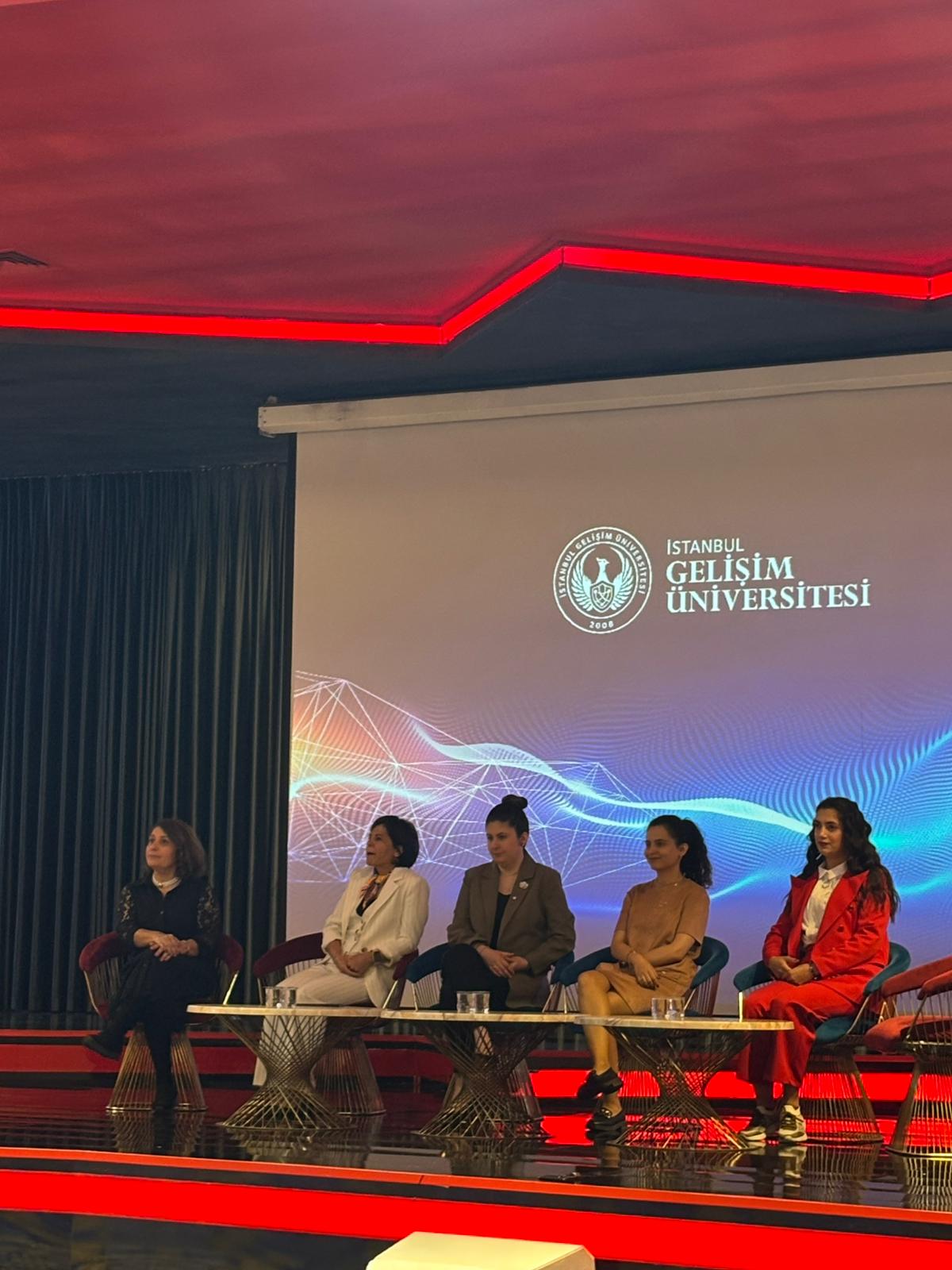Assist. Prof. Nurten Elkin emphasized the significance of accessible and high-quality healthcare services in fostering healthy urbanization and promoting the well-being of urban residents. She underscored that effective health policies play a critical role in the successful and equitable delivery of these services. Dr. Elkin highlighted that whether individuals reside in urban or rural areas may affect their access to healthcare, with issues such as transportation and service availability requiring special consideration. She aimed to raise awareness regarding the “Health Transformation Program” implemented in Turkey, characterizing it as a healthcare reform initiative. She stated: “Living a healthy life is a fundamental right of every individual from birth.” Health, as she explained, constitutes one of the core indicators of societal development. She defined healthcare services as encompassing disease prevention, diagnosis, treatment, and rehabilitation aimed at enabling individuals to maintain independent lives. While the Health Transformation Program has led to improvements in healthcare delivery and socio-demographic indicators, Dr. Elkin also noted areas still in need of development. Evidence suggests that healthcare expenditures increased during and after the implementation of the program. She concluded her remarks by stating: “Although the reform has improved satisfaction among healthcare service users, it has also been associated with decreased satisfaction among healthcare professionals.”
Vice Head of the Department Buse Bulat addressed the topic of children’s right to play and physical development in urban environments. In her presentation titled “Play Spaces and Physical Development of Children in Urban Settings,” she provided a comprehensive analysis of how urban planning often overlooks children's developmental needs, potentially affecting their physical, social, and psychological health in the long term. She emphasized that playgrounds are not merely recreational spaces but essential environments for physical, cognitive, and social development. “For children, play is not just a leisure activity; it is the most fundamental tool for learning, expression, and growth. It plays a crucial role in shaping personality and developing social identity as much as it does in physical development,” she noted. Referencing global frameworks such as the Child-Friendly Cities Initiative, the Istanbul Play Master Plan, and the United Nations Convention on the Rights of the Child, Bulat advocated for prioritizing children’s needs in urban planning. She highlighted that the diversity, safety, and accessibility of play areas are vital to children’s healthy development. During the interactive session, key insights were shared regarding the importance of supporting children’s development through both structured and unstructured physical activities, which contribute to skills such as attention, coordination, endurance, and social interaction.
Lecturer Bedriye Çelik Kanca delivered a presentation titled “Urban Children and Digital Addiction,” in which she explored technology use and digital dependency among children in the digital age. The well-attended session provided valuable insights into age-appropriate technology use and its developmental implications. Drawing attention to the specific challenges posed by urban life, she explained the stages at which digital addiction can emerge and its potential effects on child development. Kanca emphasized that digital addiction extends beyond excessive screen time, potentially disrupting children’s social, emotional, and cognitive development. She argued that children’s interactions with technology should be evaluated in accordance with their developmental stages and offered guidance for both parents and educators. She stressed the need for providing alternative social and physical activity opportunities to prevent digital addiction. Her presentation addressed questions such as: What is digital addiction? At what ages is it most prevalent? What behaviors indicate early signs of addiction? What should parents and educators be mindful of? An interactive discussion followed, allowing for deeper engagement with the topic and raising awareness about healthy digital engagement in childhood.
Additionally, a senior student from the Child Development Department contributed to the symposium with a presentation focusing on the role of the family in urbanization. Moreover, students from the department represented their program successfully by securing third place in the “Urban Utopias” Poster Competition.





